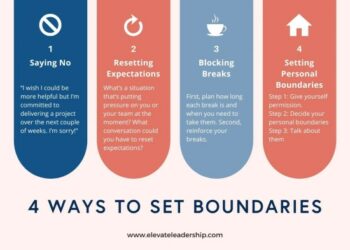In today's fast-paced world of remote work, ensuring mental wellness is key to productivity and happiness. This guide dives into essential tips and strategies for remote workers to maintain their mental health and well-being.

As we explore the importance of mental wellness, strategies for promoting it, the role of social connections, and the impact of physical health, you'll discover practical advice to thrive in the remote work environment.
Importance of Mental Wellness for Remote Workers
Remote work has become increasingly common in today's digital age, with many individuals opting to work from home or other locations outside of a traditional office setting. While remote work offers flexibility and convenience, it also brings about unique challenges that can impact the mental wellness of workers.
Challenges Faced by Remote Workers
- Isolation: Remote workers may feel isolated and disconnected from their colleagues, leading to feelings of loneliness and lack of social interaction.
- Lack of boundaries: The line between work and personal life can blur for remote workers, making it difficult to switch off and relax.
- Communication barriers: Remote workers may struggle with effective communication, leading to misunderstandings and feelings of being out of the loop.
Statistics on Mental Health Impact
According to a study by the American Psychological Association, remote workers are more likely to experience high levels of stress and anxiety compared to their office-based counterparts. Additionally, research has shown that remote workers are at a higher risk of burnout due to longer working hours and difficulties in separating work from personal life.
Strategies for Promoting Mental Wellness
Creating a healthy work-life balance is crucial for maintaining mental wellness while working remotely. Setting boundaries between work and personal life is equally important to prevent burnout and maintain well-being. Incorporating mindfulness practices into daily routines can also significantly benefit mental health.
Tips for Creating a Healthy Work-Life Balance
- Establish a designated workspace at home to separate work from leisure activities.
- Set specific work hours and stick to them to avoid overworking.
- Schedule regular breaks throughout the day to rest and recharge.
- Engage in hobbies or activities outside of work to unwind and relax.
Significance of Setting Boundaries
Setting boundaries between work and personal life helps prevent work-related stress from spilling over into personal time. It allows for better focus during work hours and relaxation during non-work hours, promoting overall well-being.
Benefits of Incorporating Mindfulness Practices
- Reduces stress and anxiety by promoting present-moment awareness.
- Improves focus and concentration, leading to increased productivity.
- Enhances self-awareness and emotional regulation, fostering better mental health.
- Promotes overall sense of calm and well-being, improving quality of life.
Social Connection and Support
Maintaining social connections is crucial for the mental wellness of remote workers as it helps combat feelings of isolation and promotes a sense of belonging. Having a support system in place can significantly impact one's overall well-being and productivity.
Staying Connected with Colleagues and Friends
- Utilize video conferencing tools for virtual coffee breaks or lunch meetings with colleagues to maintain relationships.
- Create virtual social events like game nights or book clubs to engage with friends and coworkers outside of work.
- Join online communities or forums related to your interests or industry to connect with like-minded individuals.
Seeking Support When Needed
- Reach out to a trusted friend, family member, or colleague when feeling overwhelmed or stressed.
- Consider talking to a mental health professional or therapist for professional support and guidance.
- Participate in virtual support groups or counseling sessions to connect with others facing similar challenges.
Physical Health and Mental Wellbeing
Maintaining physical health is crucial for promoting mental wellness, especially for remote workers who may spend long hours sitting at a desk. Taking care of your body can have a direct impact on your mental state, productivity, and overall well-being.
Incorporating Physical Activity into Remote Work Routines
Regular physical activity is essential for remote workers to combat the sedentary nature of their work environment. Here are some tips for incorporating exercise into your daily routine:
- Set aside time for a daily workout, whether it's a quick walk, yoga session, or home workout routine.
- Use standing desks or adjustable desks to alternate between sitting and standing throughout the day.
- Take short active breaks every hour to stretch and move around.
- Join virtual fitness classes or online workout groups to stay motivated and connected.
Impact of Nutrition and Hydration on Mental Health
Proper nutrition and hydration play a significant role in maintaining mental health during remote work. Here's how you can ensure you're fueling your body and mind effectively:
- Choose nutrient-dense foods like fruits, vegetables, whole grains, lean proteins, and healthy fats to support brain function and energy levels.
- Stay hydrated by drinking plenty of water throughout the day to prevent dehydration, which can lead to fatigue and cognitive decline.
- Avoid excessive caffeine and sugar consumption, as they can negatively impact your mood, focus, and overall well-being.
- Plan and prepare healthy meals and snacks in advance to avoid reaching for unhealthy options out of convenience.
Ultimate Conclusion
As we conclude our discussion on mental wellness tips for remote workers, remember that prioritizing your mental health is crucial for long-term success. By implementing these strategies and seeking support when needed, you can create a fulfilling remote work experience.
Common Queries
How can remote workers maintain a healthy work-life balance?
Remote workers can establish set work hours, create a designated workspace, and take regular breaks to separate work from personal life.
Why is social connection important for remote workers' mental wellness?
Social connections combat feelings of isolation and provide emotional support, boosting mental well-being for remote workers.
What impact does physical health have on mental wellness for remote workers?
Physical activity, proper nutrition, and hydration play a vital role in maintaining mental well-being, enhancing focus and overall mood.
 As we explore the importance of mental wellness, strategies for promoting it, the role of social connections, and the impact of physical health, you'll discover practical advice to thrive in the remote work environment.
As we explore the importance of mental wellness, strategies for promoting it, the role of social connections, and the impact of physical health, you'll discover practical advice to thrive in the remote work environment.












